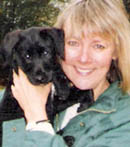Chapter 7
As usual she was sitting on her stool, making her distinctive chattering sounds as she watched birds perched on electrical wires at the window. But now she was hungry. Time to get him up.
She leapt from the stool to the futon and, purring loudly, she started to rub her forehead on Arsy’s unshaven chin. Next came the kneading and the sandpaper tongue kisses which did the trick. With a groan Arsy opened his eyes. Pulling the fat tabby to his chest he gave her a brief cuddle.
“Good morning, Minka! I have so much to tell you, but first coffee.”
Rolling out of his futon Arsy grabbed his sweat shirt. It was getting cold. Early November. His mind went back to the beautiful Svetlana and the message she had delivered. It wasn’t good news. In fact it was terrible news but he’d think about all that later.
The cat yawned and started to sway her tail. With a muted yowl she leaped up to her feeding station and waited for her bowl of milk and the sardines she had ordered for breakfast. Minka needed her strength. Today would be the day she’d make short shrift of that Noir who was probably already skulking by the door.
* * *
Arsy’s home studio was originally an attic. During soviet times the attic was common usage. The people who lived in the house could use it for storage or to hang up their wash (you can imagine the conflicts and shit fights…)
After 1991 the apartments were privatized. Some Latvian guy more or less took it over (blats). He then sold it to an American Latvian who thought it could make a nice studio. The American had started renovations but then someone filed a claim in court. It turned out that the attic had not been properly privatized and so the American was given the boot. Enter business man Juris Lapins. He was expert at bribing court officials and easily gained ownership of the attic. It suited his purpose to let Arsy live and work in it. But now there was trouble in paradise—if you can call the primitive digs a paradise.
Arsy was comfortable in his studio. The floor space was not great but it had running water with sink and toilet. Very primitive but doable and it was his own. Not like the leftovers from soviet times when the bathroom was shared. He had a small space heater for those cold days and colder nights. His only furniture was a futon he had found which someone had discarded, two stools, one for himself and one hopefully for an eager young student who would model for affection. That and a rickety old table on which he had a hot plate to make coffee or soup.
Most of the room was taken up with his paints and canvases he tried to sell on the street, at fairs and to tourists. Plus his special corner where he labored at producing replicas of old masters—all forgeries. These canvases brought in the money and took up most of his time and expertise.
From his studio he had a view of rooftops and other tall buildings. He loved his the large windows facing north and which also allowed a peek at the east. Drop cloths and newspapers served as carpet on the beat-up wood floor. The place smelled of turpentine and linseed oil, though he himself preferred liquid based acrylic. Certainly no old master used acrylic but for his modern knockoffs acrylic paint did the job.
The ground floor of the house on Maskavas Street was divided into three commercial spaces: a Narvesen—one of a chain of Norwegian convenience stores, a launderette and an unoccupied cubby hole waiting for a tenant. The main floor was the domain of Madame Zenunda, a well-known tarot card reader along with the formidable Noir. The old lady did well. She had two rooms and a bathroom to herself. She had succeeded in scaring away the tenant of the other room. Her neighbor had been superstitious about the “spell” Madame Zenunda had cast on her.
* * *
Sipping on his morning coffee Arsy sucked on his first cigarette of the day (he allowed himself only three). Had he been too hasty giving up his day job? His studio was now in jeopardy and, even worse, Juris was not happy about his most recent Rozentals. “You know those nosey art experts. They will not be fooled. No way can I pass this around. You yourself will have to find some rich foreigner—some Latvian American who has admired Rozentals in books but never examined the real stuff.”
Arsy squinched his eyes shut against the smoke from his cigarette. Rich foreigners didn’t grow on trees. In the summer he’d see them gawking at landmarks in Riga and sitting in expensive restaurants. He’d seen some of them at Sam’s even though it wasn’t really a high class joint. But now in November? He would have to go fish at the airport for those expats coming for the November 18 Independence Day commemoration. And that was a daunting task. The commute itself was tough and, besides, these days the airport was heavily surveyed by security. He would have to chat up some female guard to be able to hang around. That part was easy. But what to do when he saw a target?
He gave a humorless laugh. Maybe he should consult Madame Zenunda. He had sweet talked the old lady meeting up with her on the communal back stairs when she was putting out her trash.



